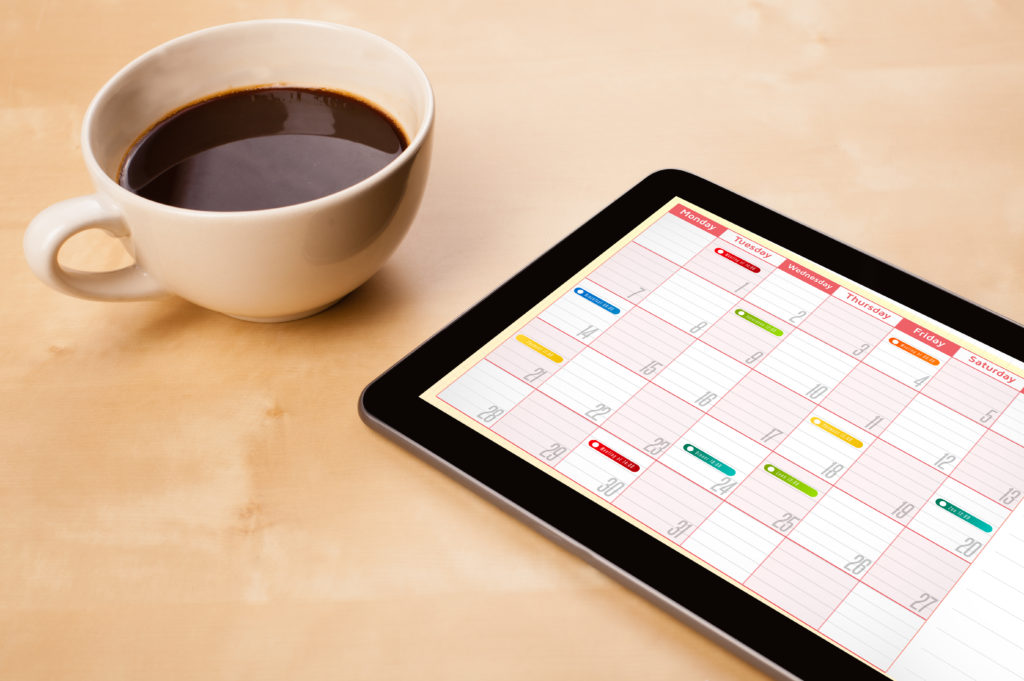
Productivity-Increasing Mind Hacks to Get Work Done While Stuck at Home

Need to tame your brain for home-based productivity?
A lot of us are shifting to a remote work setup these coming months. And in a way, that’s a blessing, right? Because many people don’t have the option to bring income in right now at all…
But staying focused and productive while at home in your pajamas brings its own unique challenges. We’ve worked with many thousands of remote workers, digital entrepreneurs, and students – the pattern is very clear:
People expect a home working environment to liberate them. Instead, a lack of oversight and team cohesion – not to mention a world of digital distraction at their fingertips – leads to well-intentioned work sessions slipping like through their fingers like sand.
Just like that, weeks, months, even years can disappear.
The Key to Cracking the Whip on Your Mind for Better Home-Based Results?
Getting productive is about setting up mental frameworks that make productivity easy.
And that condition your mind to thrive in any environment.
Essentially, you have to “outsmart” your subconscious mind if you want it to behave.
Across the 3 parts of this series, we provide you 27 proven mind hacks for doing just that.
Mind Hack #1: Create An “Unschedule”
It’s common for procrastinators to move the fun things in life to “later” because they always have work to catch up on…
Then they don’t do the work anyways. And so they put off the fun again too.
This creates a demoralizing situation where they’re constantly in work mode but never actually get anything done. And since they never catch up to leisure, life becomes one long tedious chore of non-accomplishment…
The Unschedule is a concept popularized by the book, “The Now Habit.” The core premise is to fill your planner with recreation FIRST. Wall off your weekend. Plan time off and activities for rest and recreation throughout the week (and the day).

Remember Parkinson’s Law. Work tends to swell or shrink to the time you give it. So staking off free time first forces you to get work done in tighter windows…you know, so you actually have to do it.
And it gives the brain rewards to look forward to while providing the downtime it needs to be most productive.
Mind Hack #2: But Don’t Identify with Procrastination
It’s difficult to write an article about productivity without talking about “procrastinators”…
But we have to be cautious about the mental labels we give ourselves.
When you accept an identity, you subconsciously tell yourself that’s just the way things are. Labeling yourself creates an easy excuse for not changing. Worse yet, it can make you feel like changing is impossible.
Don’t breathe more life into this challenge than it deserves.
Everyone procrastinates. And there are proven ways to get better at managing your time, focus, and energy.
You are NOT a procrastinator.
You are someone who procrastinates sometimes. And getting more focused is a skillset that CAN be learned.
That starts with…
Mind Hack #3: Embracing Beginner’s Mind
Often, the true source of procrastination is perfectionism.
In our heart of hearts, we often don’t begin something because we’re afraid of not getting it right or looking stupid, or even being seen as an “imposter.”
The best pressure release valve?
Give yourself the permission to be flawed.
Before beginning work, remind yourself that getting it wrong (or at least wrong on the first go) is okay. You are imperfect. And mistakes are lessons you can redeem with trying again.
Open your computer, close your eyes for a moment, and create a silent intention to begin the work session with “beginner’s mind.”
You’re there to learn and grow through your work.
Liberate yourself (and your results) through this mindset shift and you might tap into your best source of creativity yet.
Mind Hack #4: Create Accountability
One of the simplest accountability hacks is putting a whiteboard on the wall and standing up to mark a tally for each hour completed. You could also just use a notepad beside your computer.
Of course, this only makes you accountable to yourself, but those tallies function as a “proof of progress” that is very powerful for your brain – and a hit of accomplishment with every hour that you log.
You could even create a system of rewards and punishments for yourself based on your tally accumulation in a certain time frame.
Of course, making yourself accountable to friends can make this more powerful – partner up with someone and jump on a call every morning or evening to discuss goals, challenges, and progress. Share your daily tally if you like.
There are even websites where you can obligate yourself to donate cash to a cause you hate if you don’t follow through.
Even just filling your spouse in on what you intend to do, and then having them check in at a certain time to make sure you’re doing it, can help keep you on track.

Mind Hack #5: The Power of the “Next Task”
A helpful metaphor for work and life is to imagine yourself on a dark flight of stairs. You don’t know where it’s going, but you can see just that first step in front of you.
And once you step onto it, the next step reveals itself.
Keep doing that and step after step reveals itself in turn…eventually you arrive at your destination.
Work (and life itself) is like that. We often don’t know where a project will take us, but it seems we always know the first small step to go there. So focusing just on just the first thing you need to do creates momentum and widens your perspective as you go.
Even if you don’t know how you’re going to do something, or don’t have a bigger picture of the project, don’t let it intimidate you. Choose the first small task you do know and start.
The rest will unfold in time.
And by doing this you create an invaluable habit of always starting.
Mind Hack #6: Designate a Dedicated Office Area
Sleep doctors often say you should only use your bed for sleeping or getting intimate – never laying around watching TV. Why?
Well, the brain likes to compartmentalize things. Once it categorizes the bed as the sleeping place, you lay down in it and your mental and biological systems immediately start to relax and drift off.
If possible, set aside an entire room for your office, commit to using that room for work and study only, and honor that commitment. Same thing happens. You step in the room and your brain slips into work mode.
Some people’s dream is to have a beautiful view from the home office, but don’t let that hold you back. You may actually find it to be a distraction – for me, putting my desk in front of a blank wall forces me to either work or, well, stare at the wall.
It’s also a lot easier to shut other people out when you have a designated work room.
Which brings up another important point…
Mind Hack #7: Train Your Brain to Train People Not to Bother You
People who haven’t worked remotely won’t understand how important it is to preserve your mental focus. And may not realize how demanding knowledge work can be. After all, what could possibly be so challenging about looking up from the computer to answer a quick question, right?
A lot, actually.
All it takes a microsecond of getting pulled out of the zone and you may have to spend 10, 20, 30 minutes, an hour working on getting back in that mental sweet spot again. If you can get back there at all.
And a well-meaning family member can easily interrupt you several times an hour with a “harmless” question. There goes the day.
But here’s the real danger. If you fall into the habit of indulging these small interruptions to be polite, you train YOUR OWN brain to accept them (instead of staking off work off as the sacred mental construct it must become).
Warning: you WILL get pushback when you start setting your foot down.
But it’s imperative you get the point across; you are NOT to be bothered while working. Make it a rule, and protect that rule (or no one else will).
Again, work time is sacred.
Turn off phones and other notifications. Lock the door to your home and put in your headphones. Lock the door to your office if you live with others, and put up a custom-made sign letting people know interruption is only allowed in an emergency.
One idea is to leave the door open when doing less demanding stuff but close it during deep work sessions.
This creates an expectation pattern for yourself and others – the door open means come on in, and door closed means enter at your own risk.
Mind Hack #8: Move Around the House Too (Sometimes)
A designated office is crucial, but at times you do need to move around to avoid mental stagnation.
For example, in more normal times I often hit a coffee shop or restaurant for changes of scenery if I’m in a slump. It’s often the only creative injection I need to get running again.
If you’re stuck at home right now, you don’t have that option. Try moving around your house instead.
Do less demanding work, like fielding emails with clients or making social media posts, at the kitchen table. Or bring the computer out to the balcony or back yard and do some work there if you have the luxury.
Of course, it’s trickier to keep people from bothering you when playing musical rooms, but it can be worth it to keep the mind fresh.
Just choose your battles wisely.

Mind Hack #9: Hold Yourself to A Rigid Work Schedule
Just because you “can” make your own hours doesn’t mean you shouldn’t have set hours to work by. Keeping a strict schedule leaves you with a lot less choices to contend with and potentially pull you off track.
It also conditions your routine-loving brain to gear up for work at the same time every day.
“Clock in” every morning at a specific hour, put in your time, and then “clock out.”
You don’t necessarily have to work in 8-hour blocks, though. Once you get productive at home, you may find a lack of office distraction means doing more with less time.
You could also break your day in two.
For example, get up in the morning and put in your five good hours between 8 a.m. and 1 p.m. Take some hours off to enjoy the day. And then finish your remaining hours in the afternoon or early evening.
Figure out the best schedule for you, but then stick with it most days.
For more hacks, part 2 will be available on Wednesday 22 April.
